The Nutrition-Smile Connection: How Your Diet Impacts Oral Health in Atlanta’s Health-Conscious Community

Atlanta’s growing wellness movement has sparked increased awareness of how lifestyle choices affect overall health, and one of the most significant yet often overlooked connections is between nutrition and oral health. As we progress through 2025, the relationship between what we eat and the health of our teeth and gums has become a cornerstone of preventive dental care. Dr. Wayne Suway and forward-thinking dental professionals throughout the Atlanta area are witnessing firsthand how patients who embrace nutritional awareness achieve dramatically better oral health outcomes.
This holistic approach to dental wellness represents more than just avoiding sugar—it’s about understanding how every nutritional choice either supports or undermines the complex ecosystem of your mouth, affecting everything from cavity prevention to gum health and even the success of dental procedures.
Understanding the Mouth as a Nutritional Ecosystem
The Science Behind Food and Oral Health
Your mouth functions as a dynamic environment where bacteria, saliva, nutrients, and food particles interact constantly. Every time you eat or drink, you’re essentially feeding not just your body, but also the millions of bacteria that naturally inhabit your oral cavity. The key to optimal oral health lies in understanding how to nourish the beneficial bacteria while starving the harmful ones.
The pH level in your mouth fluctuates throughout the day based on what you consume. When you eat sugary or acidic foods, harmful bacteria feast on these substances and produce acids that attack tooth enamel. However, certain nutrients can help maintain a more neutral pH, support enamel remineralization, and promote healthy gum tissue.
Modern research reveals that the mouth-body connection extends far beyond what we previously understood. Poor oral health has been linked to cardiovascular disease, diabetes, respiratory infections, and even pregnancy complications. Conversely, proper nutrition not only prevents dental problems but also supports your immune system’s ability to maintain oral health.
The Role of Saliva in Nutritional Health
Saliva serves as your mouth’s first line of defense, and its composition is directly influenced by your nutritional status. Adequate hydration and proper nutrition ensure that your saliva contains the minerals necessary for tooth remineralization and the enzymes needed to begin breaking down food particles before harmful bacteria can process them.
Dehydration, common in Atlanta’s hot climate, reduces saliva production and concentrates harmful bacteria. Similarly, nutritional deficiencies can impair saliva quality, reducing its protective capabilities and making teeth more vulnerable to decay and gums more susceptible to inflammation.
Essential Nutrients for Optimal Oral Health
Calcium and Phosphorus: The Foundation Builders
Calcium and phosphorus work together to build and maintain strong tooth enamel and jawbone density. These minerals are constantly being lost and replaced in a process called remineralization. Without adequate intake, teeth become weaker and more prone to decay, while jawbone loss can compromise the success of dental implants and other procedures.
Excellent sources of these crucial minerals include:
- Dairy Products: Milk, yogurt, and cheese provide highly bioavailable calcium and phosphorus
- Leafy Greens: Kale, collard greens, and spinach offer plant-based calcium sources
- Fish with Bones: Sardines and canned salmon provide both minerals plus omega-3 fatty acids
- Nuts and Seeds: Almonds, sesame seeds, and tahini contribute calcium and healthy fats
- Fortified Foods: Fortified plant milks and cereals can help meet daily requirements
Vitamin D: The Absorption Enhancer
Vitamin D is essential for calcium absorption and plays a crucial role in immune function within the mouth. Deficiency can lead to soft teeth, increased cavity risk, and gum disease. Atlanta residents often assume they get adequate vitamin D from sunshine, but many factors including sunscreen use, indoor lifestyles, and seasonal variations can create deficiencies.
Regular monitoring of vitamin D levels and appropriate supplementation when necessary can significantly improve oral health outcomes.
Vitamin C: The Gum Guardian
Vitamin C is fundamental for healthy gum tissue, as it supports collagen production and immune function. Deficiency leads to bleeding gums, slow healing after dental procedures, and increased susceptibility to gum disease.
Fresh fruits and vegetables provide the best sources of vitamin C:
- Citrus Fruits: Oranges, grapefruits, and lemons (consume in moderation due to acidity)
- Berries: Strawberries, blueberries, and blackberries offer antioxidants plus vitamin C
- Bell Peppers: Red peppers contain more vitamin C than citrus fruits
- Broccoli and Brussels Sprouts: Provide vitamin C along with other beneficial nutrients
- Kiwi Fruit: Extremely high in vitamin C and gentle on tooth enamel
B Vitamins: The Healing Supporters
B vitamins, particularly B12, folate, and riboflavin, are essential for healthy oral tissues. Deficiencies can manifest as mouth sores, cracked lips, and slow healing after dental procedures. These vitamins support cellular regeneration and immune function throughout the mouth.
Foods That Naturally Clean and Protect Teeth
Fibrous Fruits and Vegetables
Crunchy, fibrous foods act as natural toothbrushes, helping remove plaque and food particles while stimulating saliva production. The mechanical action of chewing these foods promotes healthy blood flow to the gums and exercises the muscles that support your teeth.
Natural teeth-cleaning foods include:
- Apples: The “toothbrush fruit” helps clean teeth while providing beneficial nutrients
- Carrots: Raw carrots scrub teeth and provide beta-carotene for tissue health
- Celery: High water content and fibrous texture make it an excellent natural cleanser
- Raw Broccoli: Provides mechanical cleaning plus vitamin C and other nutrients
- Pears: Less acidic than many fruits while still providing cleansing benefits
Cheese and Other Alkaline Foods
Cheese and other alkaline foods help neutralize the acids produced by harmful bacteria, creating a more favorable environment for tooth enamel. The calcium and phosphorus in cheese also support remineralization processes.
Green Tea: The Antioxidant Protector
Green tea contains catechins, powerful antioxidants that help fight bacteria and reduce inflammation in the gums. Regular consumption of unsweetened green tea can significantly reduce the risk of gum disease and tooth loss.
Harmful Foods and Hidden Dangers
The Sugar Trap: Beyond Obvious Sweets
While most people understand that candy and desserts harm teeth, many don’t realize that processed foods, sauces, and even seemingly healthy options can be loaded with hidden sugars. These hidden sugars feed harmful bacteria just as effectively as obvious sweets.
Common sources of hidden sugars include:
- Condiments and Sauces: Ketchup, barbecue sauce, and salad dressings often contain high sugar levels
- Processed Foods: Crackers, bread, and even savory snacks may contain added sugars
- Dried Fruits: Concentrated sugars and sticky textures make dried fruits particularly harmful to teeth
- Sports and Energy Drinks: Often contain more sugar than candy bars plus damaging acids
- Flavored Yogurts: Can contain as much sugar as ice cream despite health claims
Acidic Foods: The Enamel Eroders
Acidic foods and beverages directly attack tooth enamel, weakening it and making teeth more susceptible to decay. While some acidic foods offer nutritional benefits, understanding how to consume them safely protects your teeth while maintaining good nutrition.
Highly acidic items requiring careful consumption include:
- Citrus Fruits: Consume with meals and rinse with water afterward
- Vinegar-based Foods: Pickles, vinaigrettes, and fermented foods
- Tomatoes: Both fresh tomatoes and tomato-based products are highly acidic
- Wine: Both alcohol content and acidity make wine particularly damaging to teeth
- Coffee: Acidic and often consumed with sugar, creating double damage potential
Timing and Consumption Strategies
The timing of when you eat acidic or sugary foods matters as much as what you eat. Consuming these foods as part of meals rather than as standalone snacks gives your saliva a better chance to neutralize acids and clear harmful substances from your mouth.
Hydration and Oral Health
Water as Medicine for Your Mouth
Proper hydration is fundamental to oral health, yet many Atlanta residents don’t drink enough water throughout the day. Water helps maintain saliva production, flushes away food particles and bacteria, and dilutes acids produced by harmful bacteria.
Atlanta’s hot climate increases hydration needs, making adequate water consumption even more critical for oral health. Air conditioning and indoor heating can also contribute to dehydration, affecting saliva production and oral health.
The Quality Question: Tap vs. Bottled Water
Atlanta’s fluoridated water supply provides cavity-fighting benefits that bottled water often lacks. While water filters can remove unpleasant tastes and odors, many also remove beneficial fluoride. Understanding your water source and its fluoride content helps you make informed decisions about oral health benefits.
Special Considerations for Different Life Stages
Children and Adolescents: Building Strong Foundations
Growing children and teenagers have unique nutritional needs that directly impact their developing teeth and jaws. Peak bone-building years require adequate calcium, phosphorus, and vitamin D to ensure proper tooth development and jaw growth.
Atlanta families often struggle with balancing convenience foods with proper nutrition. Teaching children about the connection between food choices and oral health creates lifelong habits that prevent future dental problems.
Adult Nutrition and Oral Health Maintenance
Adults face different challenges in maintaining oral health through nutrition. Busy lifestyles, stress, and changing metabolisms all affect nutritional status and oral health. Understanding how to maintain optimal nutrition despite these challenges prevents dental problems and supports overall health.
Seniors: Special Nutritional Needs
Aging brings unique oral health challenges, including reduced saliva production, medication side effects, and changes in taste and smell that affect food choices. Proper nutrition becomes even more critical for maintaining oral health and supporting healing after dental procedures.
Many seniors find it difficult to eat nutritious foods due to dental problems, creating a cycle where poor oral health leads to poor nutrition, which further compromises oral health. Breaking this cycle requires coordinated care between dental and medical providers.
Nutrition and Dental Procedure Success
Pre-Procedure Nutritional Optimization
Proper nutrition significantly impacts healing after dental procedures, from routine cleanings to complex oral surgeries. Patients who optimize their nutritional status before procedures experience faster healing, reduced complications, and better long-term outcomes.
Key nutrients for optimal healing include:
- Protein: Essential for tissue repair and immune function
- Vitamin C: Supports collagen formation and wound healing
- Zinc: Critical for cellular regeneration and immune response
- Iron: Necessary for oxygen transport to healing tissues
- Omega-3 Fatty Acids: Reduce inflammation and support healing processes
Post-Procedure Nutritional Support
After dental procedures, temporary dietary modifications may be necessary, but maintaining adequate nutrition remains crucial for optimal healing. Understanding how to maintain nutritional quality while accommodating post-procedure dietary restrictions ensures the best possible outcomes.
Creating Sustainable Oral Health Nutrition Plans
Practical Implementation Strategies
Knowing which foods support oral health is only valuable if you can realistically incorporate them into your daily routine. Creating sustainable nutrition plans requires understanding your lifestyle, preferences, and practical constraints while still achieving optimal oral health benefits.
Effective strategies include:
- Meal Planning: Incorporating oral health-friendly foods into weekly meal plans
- Smart Snacking: Choosing snacks that clean teeth rather than damage them
- Hydration Habits: Developing consistent water consumption throughout the day
- Timing Strategies: Eating sugary or acidic foods at optimal times to minimize damage
- Preparation Methods: Using cooking and preparation techniques that preserve nutritional benefits
Family-Friendly Approaches
Creating family nutrition plans that support everyone’s oral health requires balancing different ages, preferences, and nutritional needs. Atlanta families can take advantage of local farmers’ markets, community gardens, and seasonal produce to create varied, interesting meal plans that support oral health.
Working with Healthcare Providers
Integrative Care Approaches
The most effective oral health nutrition plans involve collaboration between dental and medical providers. Your dentist can identify specific oral health challenges that nutrition might address, while nutritionists or physicians can help create comprehensive plans that support both oral and overall health.
Regular communication between providers ensures that nutritional recommendations support dental treatments while addressing any underlying health conditions that might affect oral health.
Monitoring and Adjustments
Nutritional needs change over time due to aging, health conditions, medications, and life circumstances. Regular monitoring ensures that your nutrition plan continues supporting optimal oral health as your needs evolve.
The Future of Nutritional Oral Health
Personalized Nutrition for Oral Health
Advances in understanding individual genetic variations, microbiome composition, and metabolic differences are leading toward more personalized nutrition recommendations for oral health. These developments will allow for increasingly specific dietary recommendations based on individual risk factors and responses.
Technology and Tracking
Digital tools and apps are making it easier to track nutritional intake and understand its impact on oral health. These technologies help patients make better daily choices while providing healthcare providers with detailed information for creating optimal treatment and prevention plans.
Atlanta Resources for Oral Health Nutrition
Local Opportunities
Atlanta offers numerous resources for accessing fresh, nutritious foods that support oral health. Farmers’ markets, community gardens, and local farms provide seasonal produce that can form the foundation of an oral health-supporting diet.
Understanding how to take advantage of Georgia’s agricultural abundance helps create varied, interesting nutrition plans that support oral health while enjoying the region’s natural bounty.
Community Support
Many Atlanta-area organizations offer nutrition education, cooking classes, and community gardens that can support your oral health nutrition goals. Connecting with these resources provides both practical knowledge and community support for maintaining healthy lifestyle changes.
Your Path to Nutritional Oral Wellness in Atlanta
Dr. Wayne Suway understands that optimal oral health requires more than excellent dental care—it demands a comprehensive approach that includes proper nutrition and lifestyle choices. At our Vinings practice, we work with patients to understand how their dietary choices impact their oral health and provide personalized recommendations for achieving the best possible outcomes. Whether you’re dealing with specific oral health challenges, preparing for dental procedures, or simply want to optimize your preventive care routine, we’re here to help you understand the powerful connection between nutrition and oral health.
Contact Dr. Wayne Suway’s office today to discover how nutritional awareness can enhance your dental care and contribute to lifelong oral wellness in the heart of Atlanta’s health-conscious community.
Posted on behalf of
1820 The Exchange SE, #600
Atlanta, GA 30339
Phone: (770) 953-1752
FAX: (770) 953-6470
Mon - Thu: 8:30 AM – 5:30 PMClosed for lunch: 12:30 PM - 1:30 PM


